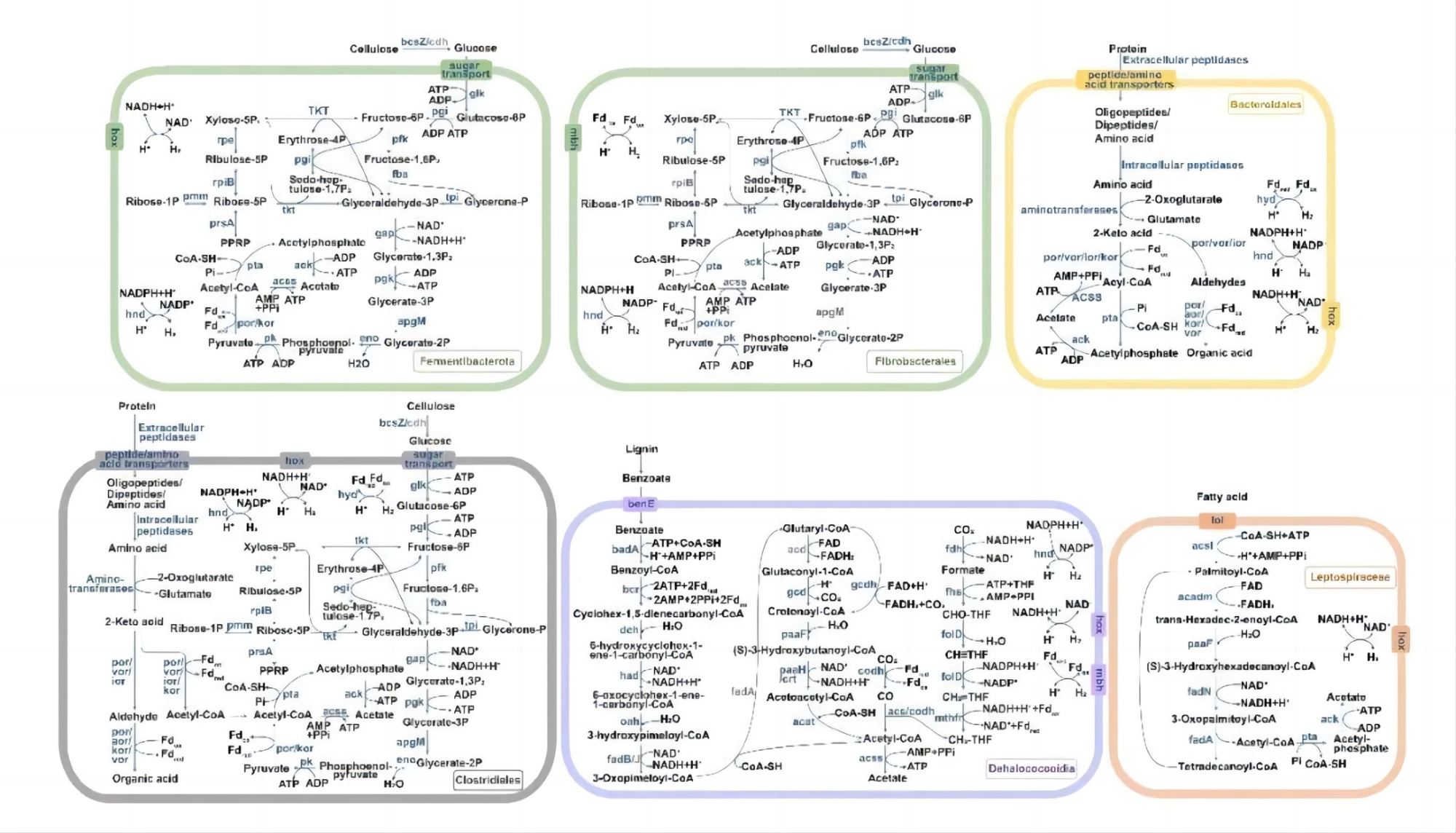Anaerobic degradation of organic carbon supports uncultured microbial populations in estuarine sediments
Background
A large proportion of prokaryotic microbes in marine sediments remains uncultured, hindering our understanding of their ecological functions and metabolic features. Recent environmental metagenomic studies suggested that many of these uncultured microbes contribute to the degradation of organic matter, accompanied by acetogenesis, but the supporting experimental evidence is limited.
Results
Estuarine sediments were incubated with different types of organic matters under anaerobic conditions, and the increase of uncultured bacterial populations was monitored. We found that (1) lignin stimulated the increase of uncultured bacteria within the class Dehalococcoidia. Their ability to metabolize lignin was further supported by the presence of genes associated with a nearly complete degradation pathway of phenolic monomers in the Dehalococcoidia metagenome-assembled genomes (MAGs). (2) The addition of cellulose stimulated the increase of bacteria in the phylum Ca. Fermentibacterota and family Fibrobacterales, a high copy number of genes encoding extracellular endoglucanase or/and 1,4-beta-cellobiosidase for cellulose decomposition and multiple sugar transporters were present in their MAGs. (3) Uncultured lineages in the order Bacteroidales and the family Leptospiraceae were enriched by the addition of casein and oleic acid, respectively, a high copy number of genes encoding extracellular peptidases, and the complete β-oxidation pathway were found in those MAGs of Bacteroidales and Leptospiraceae, respectively. (4) The growth of unclassified bacteria of the order Clostridiales was found after the addition of both casein and cellulose. Their MAGs contained multiple copies of genes for extracellular peptidases and endoglucanase. Additionally, 13C-labeled acetate was produced in the incubations when 13C-labeled dissolved inorganic carbon was provided.
Conclusions
Our results provide new insights into the roles of microorganisms during organic carbon degradation in anaerobic estuarine sediments and suggest that these macro and single molecular organic carbons support the persistence and increase of uncultivated bacteria. Acetogenesis is an additional important microbial process alongside organic carbon degradation.

figure 1 Metabolic map of uncultured bacteria illustrating the degradation pathways of added substrates to acetate and H2. Genes detected in our MAGs are shown in blue, and genes are not detected in our MAGs but are detected in the reference shown in gray. Enzymes are abbreviated with letters.

figure 2 Carbon flow from the added substrates to CH4, CO2, and acetate and the identified microbial groups involved in the cycling of these compounds in estuarine methanogenic sediments
Link: microbiomejournal.biomedcentral.com/articles/10.1186/s40168-023-01531-z


 loading......
loading......